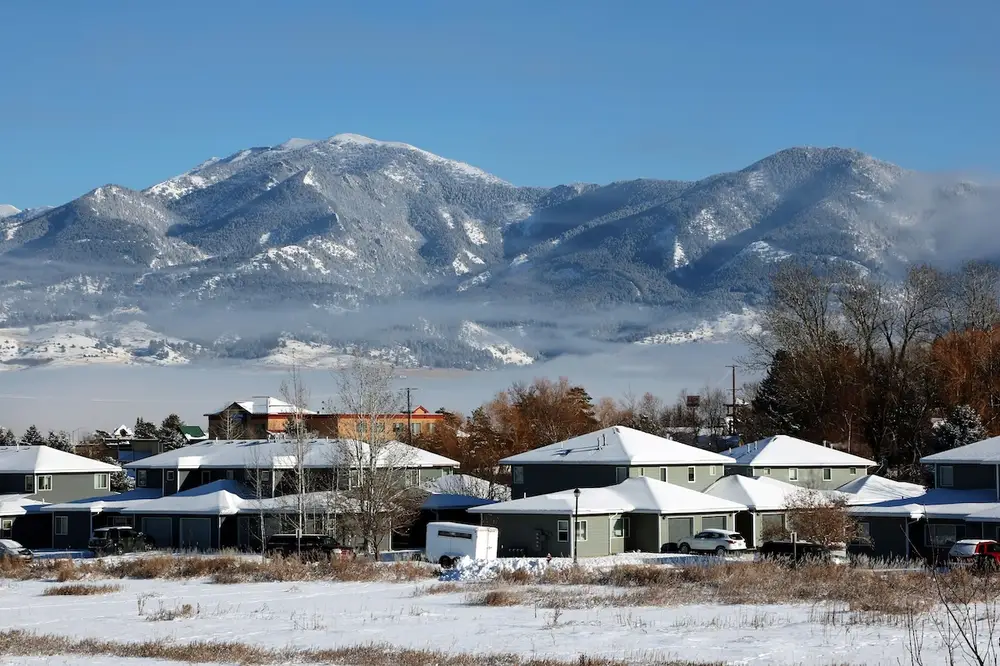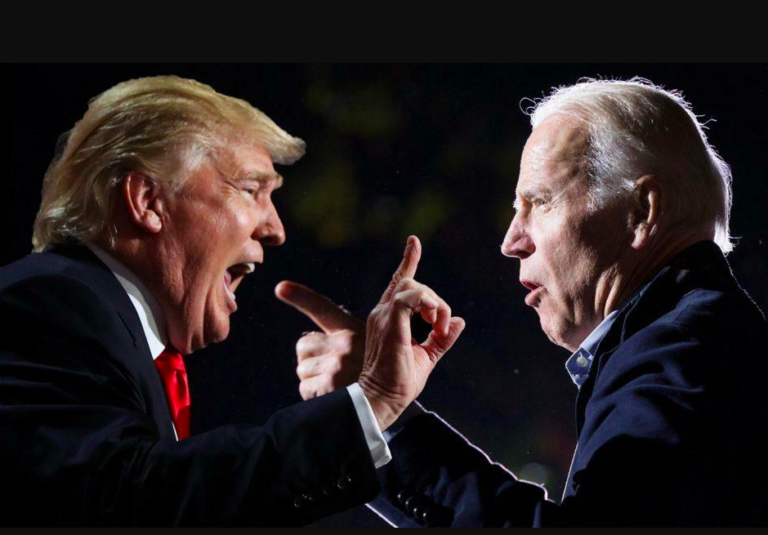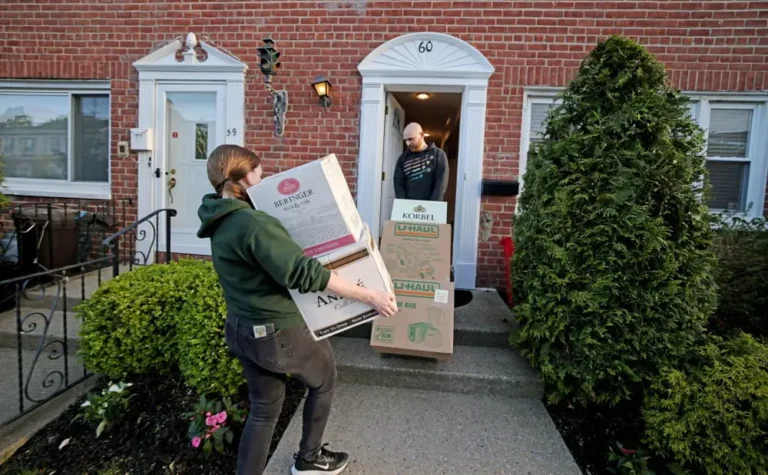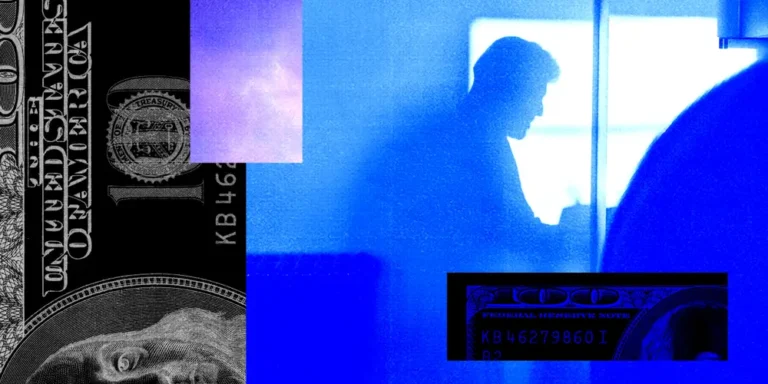Montana’s housing crisis is a warning for older homeowners across the country

A residential neighborhood in Bozeman, Montana.
Owning a home doesn’t guarantee financial security in retirement — even when home values have skyrocketed, as they have in communities across the country over the past few years.
This is particularly apparent in the state of Montana, which has seen home values surge as out-of-staters move in and its home shortage deepens. But in Big Sky Country, as in much of the nation, costs associated with homeownership, including home insurance premiums, property taxes, and home repairs, have also risen quickly.
Older homeowners who live on fixed incomes are having a particularly hard time managing these rising costs. With mortgage interest rates sky-high and home inventory low, they have few options to downsize.
Beverly Dashnaw has worked as a HUD-certified housing counselor for about two decades in Montana, and she says she’s never seen so many retired and older homeowners struggling to make ends meet. She blames rising property taxes and insurance costs but notes that inflation, in general, has also squeezed those on fixed incomes.
“Elderly and disabled people are struggling really, really hard,” she said. “The cost of living, inflation is going up for everything, and their income doesn’t go up.”
Montana’s crisis is particularly acute as it has one of the oldest populations in the US. The Census Bureau estimated that in 2020, nearly 20% of the state’s residents were 65 or older, significantly higher than the 16.8% share nationwide. The state is also particularly impacted by the climate crisis — in the form of more severe wildfires and hail storms, among other extreme weather events — which is pushing its insurance premiums up among the fastest in the country.
But Montana isn’t alone. Older homeowners are struggling in communities across the country. Insurance costs have risen dramatically all over — a result of both increasingly severe climate issues, including flooding and fires, and the elevated cost of home construction and repairs. Nationally, home insurance premiums rose by an average of 21% between May 2022 and May 2023, Policygenius found. Home repairs are also more costly these days, with a shortage of construction workers and the elevated cost of materials.
The portion of homeowners 55 and older who are cost-burdened — or spend more than 30% of their income on housing and utilities — rose from 30% in 2001 to 45% in 2022, a new report from the Harvard Joint Center for Housing Studies on the state of US housing found. “A shocking 95 percent of older adult homeowners with low incomes and mortgages are cost burdened, dramatically higher than the 56 percent of their counterparts who own their homes outright and the 74 percent of those who rent,” the report found.
The housing-affordability crisis coincides with the country’s retirement crisis. A fifth of Americans 50 and older have no retirement savings. And older people are increasingly losing their homes. The portion of homeless single adults who are 50 or older is estimated to have grown from about 10% to 50% over the past three decades.
A crisis exacerbated by the pandemic
Dashnaw works for the nonprofit NeighborWorks Montana, where she counsels existing homeowners struggling to afford their housing costs or facing foreclosure, potential first-time homebuyers, and those seeking affordable rental housing. Many of her clients are also struggling with illness.
“A lot of it is the health issues,” she added. “People that got sick during COVID or even after and just couldn’t manage to catch up their payments.”
Those who own mobile homes but not the land the home sits on are increasingly vulnerable to rising rents.
Many older homeowners forced out of their housing end up homeless, part of a growing homeless population in the state. Montana’s homeless shelters have reported encountering more older people.
Dashnaw says it has also become more common to see multiple families living in the same home. “That’s another trend that you didn’t see in years past,” she said.
While Montana’s housing issues have been mounting for years, they exploded during the pandemic as tens of thousands of Californians and others took advantage of remote work and moved into the state. At the same time, the state’s booming outdoor tourism has pushed long-term rentals off the market in favor of Airbnb and other short-term rentals. The surge in demand from transplants with fat wallets sent home prices and rents soaring. Statewide, home prices have soared by 60% since early 2020, while rents are among the fastest-growing in the country.
The crisis has gotten so severe that Montana’s conservative governor, Greg Gianforte, and the state’s Republican-majority legislature have acted, recently passing a slew of housing reforms designed to boost the supply of homes. The state loosened zoning restrictions, allowed for more housing density, and required localities to devise a land-use plan, among other measures. The measures have been hailed by pro-housing experts as the “Montana Miracle” and a model for the rest of the country.
“The bottom line, demand outstripped supply and we saw housing prices really spike,” Gianforte told Business Insider earlier this year. “We knew we had to do something about it.”
But Dashnaw worries there isn’t enough assistance available in the meantime. The Homeowner Assistance Fund — a pot of money provided by the American Rescue Plan of 2021 and dedicated to aiding homeowners struggling with pandemic-related hardships — has been a crucial source of aid for her clients, but its funding is finite and will run out at some point, she says. In other states, pandemic-era homeowner assistance programs have already run out.
For years, Dashnaw ran a catering business to supplement her nonprofit salary. There, she worked for second-home owners who left their large Montana houses empty for months at a time.
“The gap in the classes has just grown where you’ve got a middle class that’s been pushed into poverty,” she said, “And the wealthy are still wealthier.”






